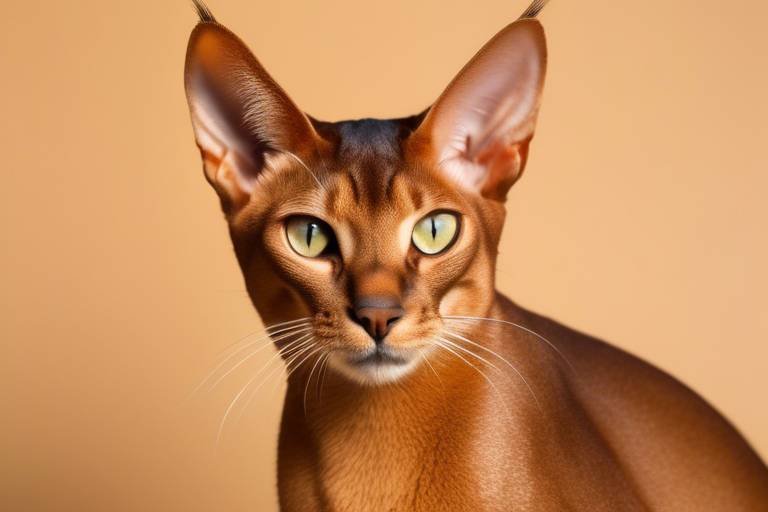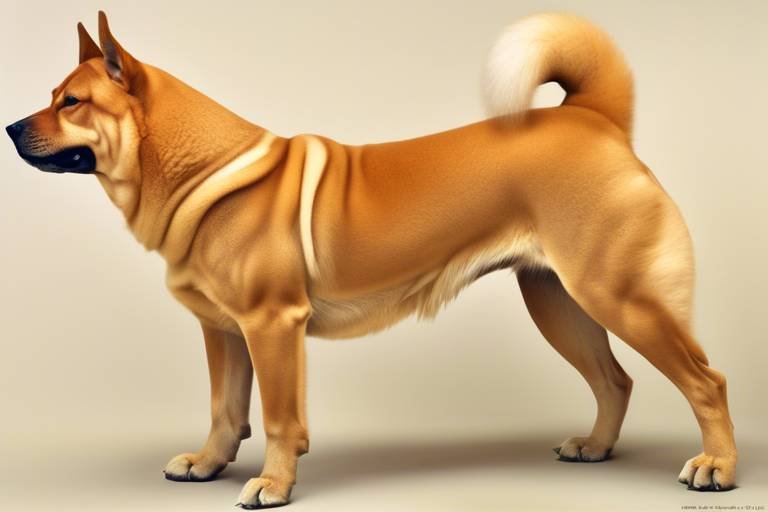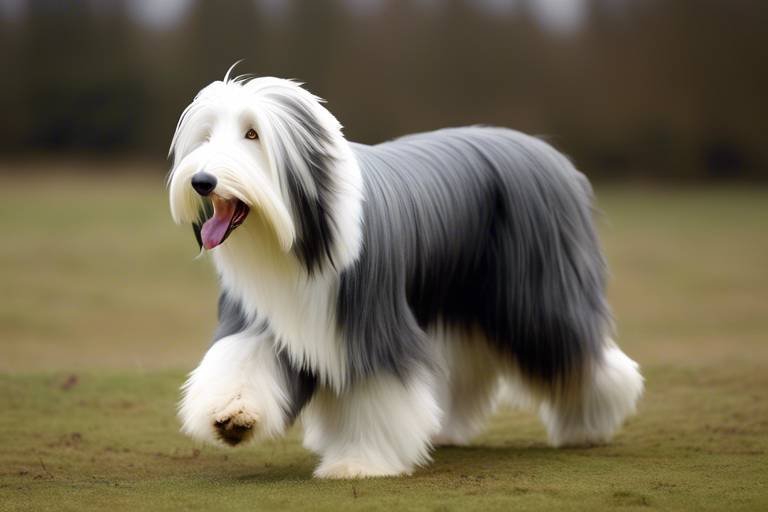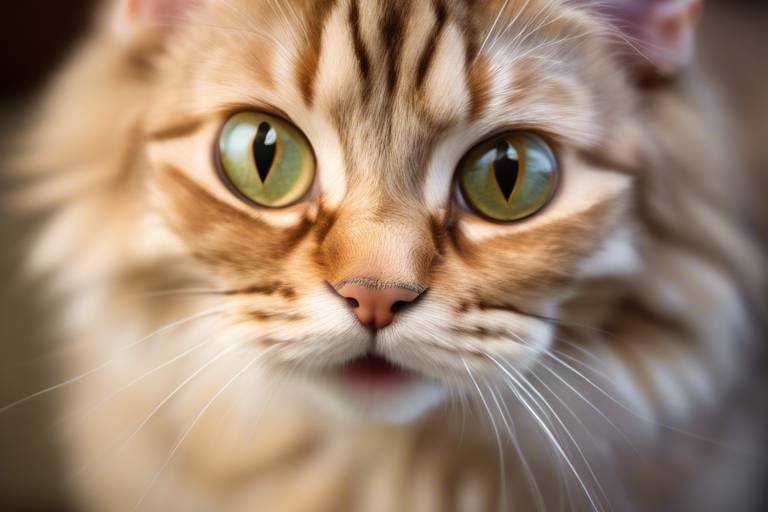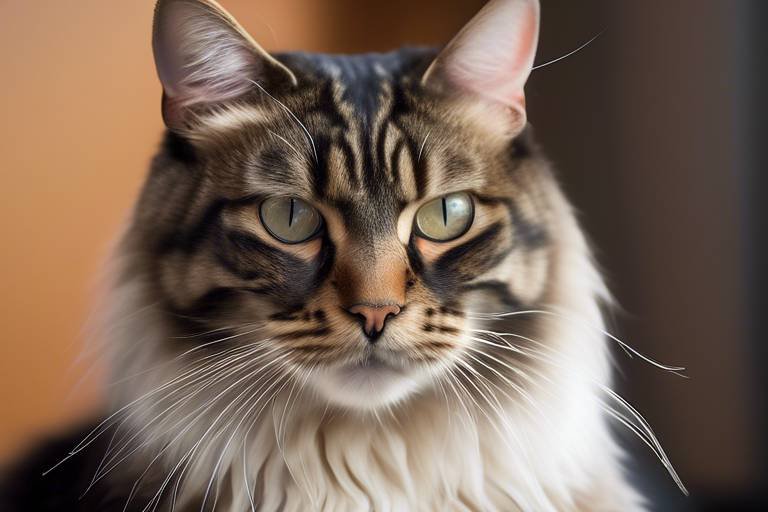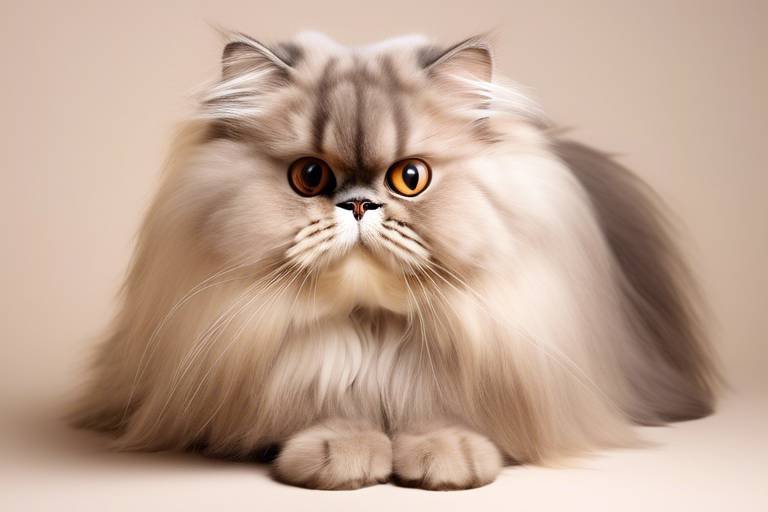Exploring the Characteristics of the Abyssinian Cat
The Abyssinian cat is a breed that captivates with its striking appearance and vibrant personality. Originating from ancient Egypt, these felines are often compared to the wild cats of the savannah due to their unique ticked coats, which feature bands of color that create a warm, glowing effect. Their fur is not just beautiful; it serves a purpose, offering them a camouflage that harkens back to their wild ancestry. This article delves into the unique traits of the Abyssinian cat, covering its appearance, personality, care needs, health considerations, and more to provide a comprehensive understanding of this fascinating breed.
The physical characteristics of the Abyssinian cat are nothing short of stunning. With a medium-sized, muscular body, these cats exude grace and agility. Their coat is perhaps the most defining feature, showcasing a unique ticked pattern that consists of alternating bands of color on each hair shaft. This gives them a wild, exotic look that is hard to resist. Common colors include ruddy, red, blue, and fawn, each adding to their allure.
Moreover, Abyssinians have large, almond-shaped eyes that can be gold or green, which further enhances their expressive faces. Their ears are large and pointed, giving them an alert and curious demeanor. When you see an Abyssinian, you can't help but feel that they possess an intelligence and awareness that sets them apart from other breeds. Their graceful movements and playful antics only add to their charm, making them a favorite among cat enthusiasts.
Abyssinians are known for their playful and active nature. These cats are not just pets; they are companions who thrive on interaction and engagement. Their social behaviors are fascinating; they often follow their owners around the house, curious about everything that’s going on. With a high level of intelligence, they are quick learners and enjoy being challenged both mentally and physically.
One of the standout traits of the Abyssinian is their **playfulness**. These cats are like little bundles of energy, always ready to pounce into action. They love to chase after toys, leap around the house, and engage in playful antics that can leave you in stitches. Abyssinians thrive on play, and it's essential for their well-being. Without sufficient stimulation, they can become bored and may resort to destructive behaviors.
To keep your Abyssinian engaged, consider investing in a variety of interactive toys. These can include feather wands, laser pointers, and puzzle toys that challenge their minds. Not only do these toys provide entertainment, but they also help strengthen the bond between you and your feline friend. Here are some great options:
- Feather wands
- Laser pointers
- Catnip-filled toys
- Puzzle feeders
Training an Abyssinian can be a rewarding experience due to their intelligence. Start with basic commands and use positive reinforcement techniques, such as treats and praise, to encourage good behavior. Remember, patience is key! These cats are eager to please, and with consistent training, you can teach them tricks that will impress your friends and family.
Abyssinians are inherently social creatures that thrive on companionship. They enjoy the company of humans and other pets alike. To ensure your Abyssinian is well-socialized, introduce them to various environments and experiences early on. This will help them develop into well-adjusted adults who are comfortable in different situations. Regular interaction with family members and other pets will keep their spirits high and their personalities vibrant.
Proper care is vital for the health and happiness of Abyssinians. Grooming, diet, and exercise needs specific to this breed play a significant role in their well-being. Their short coat requires minimal grooming, but regular brushing helps to reduce shedding and maintain their coat's luster. Additionally, providing a balanced diet and ensuring they have plenty of opportunities for exercise will keep them in top shape.
Although Abyssinians have short hair, they still require regular grooming to maintain their coat. A simple brushing once a week is usually sufficient to remove loose hair and dirt. This not only keeps them looking their best but also provides an opportunity for bonding. Regular grooming can help you check for any skin issues or parasites, ensuring your cat remains healthy and happy.
A balanced diet is crucial for the Abyssinian's health. High-quality cat food that is rich in protein will support their active lifestyle. It's essential to follow the feeding guidelines provided by the manufacturer, adjusting portions based on your cat's age, size, and activity level. Providing fresh water at all times is equally important to keep them hydrated and healthy.
Like all breeds, Abyssinians are prone to certain health issues. Regular veterinary check-ups are essential for maintaining their health. Some common health concerns include dental issues, kidney disease, and certain genetic conditions. Being proactive about your cat's health can help catch any potential problems early, ensuring they live a long and happy life.
Abyssinians may inherit specific genetic conditions, including:
- Renal amyloidosis
- Dental issues
- Hypertrophic cardiomyopathy
It's important to choose a reputable breeder who conducts health screenings to minimize these risks.
Routine veterinary care is essential for maintaining health. Regular check-ups and vaccinations will help keep your Abyssinian protected from common illnesses. Additionally, your vet can provide guidance on diet, exercise, and any specific health concerns related to the breed.
Q: Are Abyssinians good pets for families?
A: Yes, Abyssinians are known for their friendly and playful nature, making them great companions for families.
Q: How much exercise do Abyssinians need?
A: They require daily playtime and mental stimulation to keep them happy and healthy.
Q: Do Abyssinians shed a lot?
A: They have a short coat that sheds minimally, making grooming relatively easy.
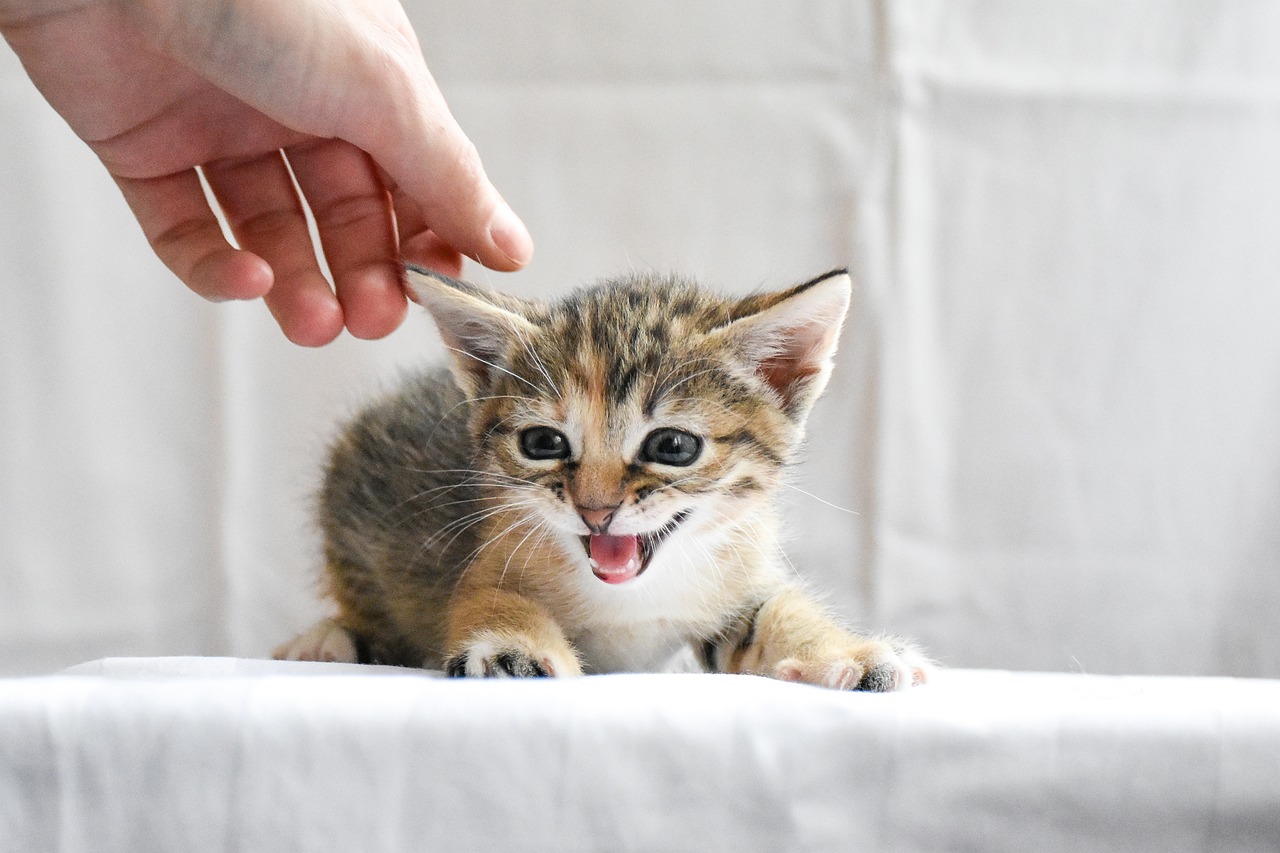
Physical Appearance
This article delves into the unique traits of the Abyssinian cat, covering its appearance, personality, care needs, health considerations, and more to provide a comprehensive understanding of this fascinating breed.
The Abyssinian cat is a true marvel of nature, boasting a striking and distinctive look that sets it apart from other breeds. One of the most notable features of this feline is its ticked coat, which gives it an almost wild appearance reminiscent of its ancestors. Each hair on an Abyssinian's coat is banded with multiple colors, creating a shimmering effect that catches the light beautifully. This unique fur pattern not only adds to their allure but also provides a sense of depth and texture that is hard to resist.
Abyssinians typically have a medium-sized, muscular body that is both agile and graceful. Their long legs and arched neck contribute to their elegant posture, making them look like they are always ready to pounce, whether it's on a toy or a passing insect. The breed’s head is another captivating aspect, featuring a rounded shape with large, expressive ears that stand erect, showcasing their alertness and curiosity. Their eyes, which can range in color from amber to green, are almond-shaped and give them an inquisitive expression that draws you in. It's as if they hold a thousand secrets within their gaze!
In terms of color, Abyssinians are most commonly seen in a rich, warm ruddy hue, but they can also come in a variety of other shades, including:
- Red
- Blue
- Fawn
- Chocolate
This variety allows for a stunning range of Abyssinians, each with its own unique charm. Regardless of their color, what remains consistent is their overall athletic build and graceful movements, which make them appear as if they are gliding across the floor.
To summarize, the physical appearance of the Abyssinian cat is a blend of beauty and athleticism, characterized by:
| Feature | Description |
|---|---|
| Coat | Ticked, multi-colored fur that creates a shimmering effect |
| Body | Medium-sized, muscular, and agile |
| Head | Rounded with large, alert ears |
| Eyes | Almond-shaped, ranging from amber to green |
| Colors | Ruddy, red, blue, fawn, chocolate |
Every detail of the Abyssinian cat's appearance tells a story of elegance and vitality, making them not just pets but also companions that captivate the hearts of those who encounter them.
Q1: Are Abyssinian cats hypoallergenic?
Abyssinians are not considered hypoallergenic, but they do produce less dander compared to some other breeds, which may make them a better option for allergy sufferers.
Q2: How long do Abyssinian cats typically live?
With proper care, Abyssinians can live between 12 to 15 years, though some may live even longer with good health management.
Q3: Do Abyssinians require a lot of grooming?
While their short coat requires less grooming than long-haired breeds, regular brushing is still recommended to reduce shedding and keep their coat healthy.
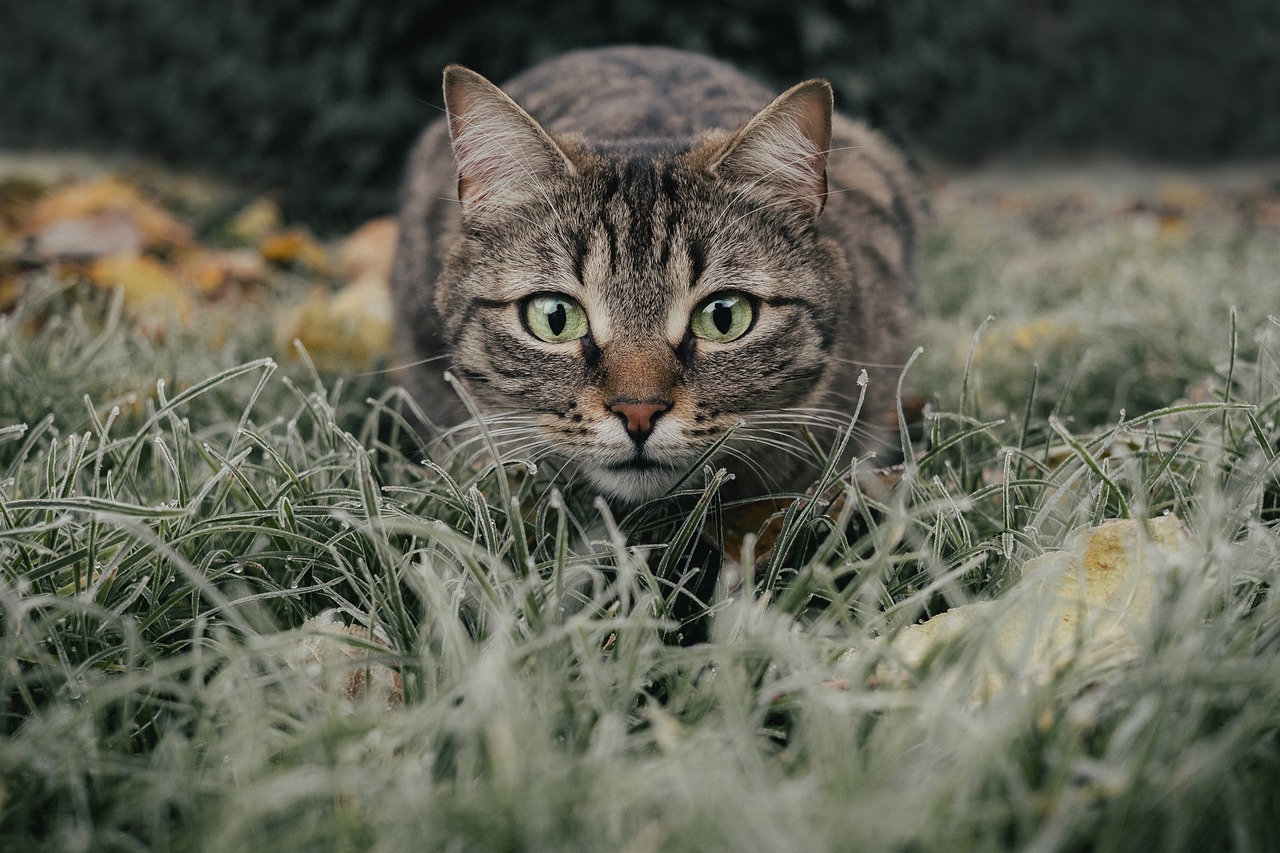
Temperament and Personality
The Abyssinian cat is not just a pretty face; it's a bundle of energy wrapped in a stunning coat! Known for their playful and active nature, Abyssinians are the life of the party in any home. They are incredibly social animals, often forming strong bonds with their human companions. If you’re looking for a cat that will keep you entertained and engaged, the Abyssinian is definitely a breed to consider. Their lively personality can light up any room, and their curious minds are always on the lookout for new adventures.
Abyssinians thrive on interaction and love to be part of the action. They are often described as dog-like in their loyalty and affection towards their owners. This breed is known for its intelligence, which makes them not only fun to play with but also relatively easy to train. They are quick learners and can pick up tricks or commands with just a little patience and positive reinforcement. Imagine having a cat that can fetch a toy or come when called—Abyssinians can do just that!
One of the most delightful traits of the Abyssinian is their playfulness. These cats have an endless supply of energy and love to engage in activities that challenge their minds and bodies. Whether it’s chasing a feather toy, climbing a cat tree, or simply racing around the house, Abyssinians are always ready for fun. They are particularly fond of interactive play, where they can engage directly with their humans. This not only keeps them active but also strengthens the bond between you and your furry friend.
To keep an Abyssinian entertained, investing in interactive toys is essential. These toys stimulate their curious nature and can help prevent boredom. Here are some recommended types of interactive toys:
- Laser pointers: These can provide endless entertainment as Abyssinians chase the elusive red dot.
- Feather wands: Perfect for engaging their hunting instincts.
- Puzzle toys: These challenge their intellect and keep their minds sharp.
By incorporating a variety of interactive toys into your cat's playtime, you can ensure they remain mentally and physically stimulated.
Training your Abyssinian can be a rewarding experience, thanks to their intelligence and eagerness to please. Here are some tips to make the training process smooth:
- Start early: Begin training when they are young to establish good habits.
- Use positive reinforcement: Reward them with treats and praise for good behavior.
- Keep sessions short: Cats have short attention spans, so keep training sessions brief but frequent.
With a little patience and consistency, your Abyssinian can learn a variety of tricks and commands, making them even more enjoyable companions.
Abyssinians are inherently social creatures. They crave companionship and thrive in environments where they can interact with both humans and other pets. If you’re considering adding an Abyssinian to your family, be prepared for a cat that wants to be involved in everything you do. Whether it’s lounging on the couch or following you around the house, they will be your loyal sidekick. To ensure your Abyssinian is well-socialized, it’s important to expose them to different people, animals, and environments from a young age. This will help them develop into well-rounded adults who are comfortable in various situations.
In summary, the Abyssinian cat is a lively, engaging, and affectionate breed that thrives on interaction and play. Their intelligence and social nature make them not just pets but true members of the family. With the right care and attention, an Abyssinian can bring joy and excitement to your home for years to come.
Q: Are Abyssinians good with children?
A: Yes, they are typically friendly and playful, making them great companions for children.
Q: Do Abyssinians require a lot of grooming?
A: No, their short coat requires minimal grooming, but regular brushing helps reduce shedding.
Q: How much exercise do Abyssinians need?
A: They are active cats and benefit from daily playtime to keep them physically and mentally stimulated.
Playfulness
The Abyssinian cat is like a tiny tornado of energy and curiosity, always on the move and ready for action. Their playfulness is not just a charming trait; it’s a fundamental part of their personality. These cats are known for their **high energy levels** and **playful antics**, making them a joy to have around. If you’re considering adopting an Abyssinian, get ready for a lively companion who will keep you entertained with their playful nature.
One of the most fascinating aspects of Abyssinian playfulness is their **intelligence**. They are not just chasing after any old toy; they prefer engaging activities that challenge their minds. Think of them as miniature athletes, always looking for the next challenge. Whether it’s a feather toy dancing in the air or a laser pointer darting across the floor, Abyssinians will leap, pounce, and sprint with a grace that is truly mesmerizing. Their agility and speed can be likened to that of a small jungle cat, making every play session feel like an exciting safari adventure right in your living room.
To keep your Abyssinian happy and stimulated, it’s essential to provide a variety of toys. Here are some types of toys that Abyssinians typically enjoy:
- Interactive toys: Toys that require them to think and engage, such as puzzle feeders or treat-dispensing balls.
- Wand toys: These allow you to play together, mimicking the hunt and tapping into their natural instincts.
- Catnip toys: Many Abyssinians go wild for catnip, making these toys a favorite during playtime.
Moreover, Abyssinians thrive on **interactive play** with their human companions. They are not the type of cats that can be left alone with a pile of toys for hours on end. Instead, they crave human interaction and engagement. Setting aside time each day for play is crucial. Think of it as a daily workout for both you and your cat, where you can bond while keeping them active. Incorporating play into your routine will not only keep your Abyssinian entertained but also strengthen your relationship.
Training can also be a part of their playtime. These cats are incredibly intelligent and can learn tricks or commands quickly, especially when treats are involved. Using positive reinforcement, you can turn training sessions into fun games. Imagine teaching your Abyssinian to fetch or even to perform simple agility tasks. This kind of mental stimulation is not just a game; it’s a way to keep their minds sharp and engaged, ensuring they remain happy and healthy.
In conclusion, the playfulness of the Abyssinian cat is one of its most endearing qualities. Their energy, intelligence, and need for interaction make them a delightful addition to any home. By understanding and catering to their playful nature, you’ll not only keep them entertained but also foster a deeper bond that will last a lifetime. So, prepare for a whirlwind of fun, laughter, and perhaps a few surprises along the way!
- How much playtime does an Abyssinian need? Abyssinians thrive on at least 30 minutes of interactive play each day to keep them happy and healthy.
- Can Abyssinians play alone? While they can entertain themselves, they prefer engaging with their human companions for a more fulfilling play experience.
- What are the best toys for Abyssinians? Interactive toys, wand toys, and catnip toys are all excellent choices for stimulating their playful nature.
Interactive Toys
When it comes to keeping your Abyssinian cat entertained, interactive toys are not just a luxury; they are a necessity. These playful felines are bursting with energy and curiosity, and they need toys that can match their lively spirit. Think of interactive toys as the ultimate gym equipment for your Abyssinian—an essential tool to keep them physically active and mentally stimulated. Without the right toys, your cat might resort to less desirable behaviors, like knocking over your favorite houseplants or turning your curtains into a makeshift climbing gym!
So, what types of interactive toys should you consider? Here’s a rundown of some of the best options:
- Feather Wands: These toys mimic the movements of birds, tapping into your Abyssinian’s natural hunting instincts. A good session with a feather wand can turn your living room into a mini safari!
- Laser Pointers: Cats love to chase the elusive red dot, and laser pointers can provide endless entertainment. Just be sure to let them "catch" something real afterward, like a toy mouse, to avoid frustration.
- Puzzle Feeders: These toys challenge your cat to work for their food, promoting mental engagement and slowing down their eating. They’re like a cat version of a treasure hunt!
- Interactive Laser Toys: For those days when you might be busy, automatic laser toys can keep your Abyssinian entertained while you’re away. They’ll dart and dash, keeping your furry friend on their toes.
Each of these toys serves a dual purpose: they provide physical exercise and stimulate the mind, which is crucial for a breed as intelligent as the Abyssinian. The more engaged they are, the less likely they are to engage in destructive behavior. Think of it as giving your cat a job—one that they find incredibly fun!
Moreover, rotating their toys regularly can keep things fresh and exciting. Just like we humans can get bored of the same old routine, your Abyssinian will appreciate a new challenge every now and then. So, don’t hesitate to mix it up! Consider incorporating a variety of textures, movements, and sounds into their playtime. The more diverse their play experience, the happier they’ll be.
In conclusion, investing in high-quality interactive toys is one of the best decisions you can make for your Abyssinian’s well-being. It’s not just about keeping them busy; it’s about enriching their lives and fostering a strong bond between you and your feline friend. After all, a happy Abyssinian is a playful Abyssinian!
Q: How often should I play with my Abyssinian?
A: Ideally, you should engage in play sessions with your Abyssinian at least once or twice a day for about 15-30 minutes each time. This helps them burn off energy and keeps them mentally stimulated.
Q: Can I leave interactive toys out for my Abyssinian when I'm not home?
A: Yes, many interactive toys can be left out for your Abyssinian to explore on their own. However, be cautious with small parts that could pose a choking hazard.
Q: What if my Abyssinian loses interest in their toys?
A: If your Abyssinian seems bored, try rotating their toys or introducing new ones. Changing the environment or the way you play can also rekindle their interest.
Training Tips
Training an Abyssinian cat can be one of the most rewarding experiences for both the owner and the feline friend. These cats are not only intelligent but also incredibly eager to learn, making them highly trainable. However, the key to successful training lies in understanding their unique personality and energy levels. Abyssinians thrive on positive reinforcement, which means that rewarding good behavior with treats, praise, or playtime will encourage them to repeat those actions. Are you ready to unlock the potential of your Abyssinian's mind?
First and foremost, it's essential to start training at a young age. Kittens are naturally curious and more adaptable, so introducing them to basic commands and tricks early on can set the foundation for a well-behaved adult cat. For example, teaching them to come when called can be a fun and interactive way to bond. Use their name often, and when they respond, shower them with affection and treats. This not only reinforces the behavior but also strengthens your relationship.
Another effective method is to incorporate play into training. Abyssinians are known for their playful nature, so why not use this to your advantage? Utilize interactive toys to create a training environment that feels more like playtime than a chore. For instance, you can use a feather wand to encourage them to jump through hoops or perform other tricks. This approach keeps their attention and makes learning enjoyable.
When it comes to teaching commands, keep your sessions short and engaging. Cats have shorter attention spans than dogs, so aim for 5-10 minute training sessions to prevent boredom. You can teach them simple commands such as "sit," "stay," or even more complex tricks like "high five." Consistency is key here; use the same words and gestures every time to avoid confusing your furry friend.
Lastly, remember that patience is a virtue. Every cat learns at their own pace, and some may take longer to grasp certain commands. If your Abyssinian seems disinterested or frustrated, take a break and try again later. The goal is to make training a fun and rewarding experience for both of you. Celebrate their successes, no matter how small, and soon enough, you'll have a well-trained companion who not only listens to commands but also enjoys the process of learning.
- How long does it take to train an Abyssinian cat? Training duration varies, but with consistent practice, you can see results within a few weeks.
- What are the best rewards for training? Treats, praise, and playtime are excellent rewards that motivate Abyssinians.
- Can I train an older Abyssinian cat? Absolutely! Older cats can learn new tricks, but patience and persistence are crucial.
- How do I stop my Abyssinian from scratching furniture? Redirect their scratching to a scratching post and reward them for using it.
Socialization
When it comes to the of Abyssinian cats, it’s like throwing a party where everyone is invited! These cats are not just solitary creatures; they thrive on interaction and companionship. Imagine an energetic little ball of fur that craves attention and love—this is the typical Abyssinian. They are known for their affectionate nature and will often follow you around the house, eager to be part of whatever you’re doing. This breed’s social behavior is not just about being around people; they also enjoy the company of other pets, making them an excellent choice for multi-pet households.
To ensure your Abyssinian grows into a well-adjusted adult, early socialization is key. This means exposing them to a variety of environments, people, and other animals from a young age. Just like a child who learns to play well with others, Abyssinians benefit greatly from experiences that teach them how to interact positively. Take them to different rooms in your home, introduce them to new friends, or even consider enrolling them in a cat-friendly training class. The more experiences they have, the more confident they will be.
One of the most delightful aspects of Abyssinians is their curiosity. They are like little explorers, always on the lookout for something new to investigate. This curiosity can sometimes lead them into trouble, so it’s essential to provide safe spaces where they can roam and explore. Creating a stimulating environment with climbing trees, scratching posts, and interactive toys can help satisfy their adventurous spirit while also encouraging positive social behaviors.
In addition to physical spaces, consider the emotional landscape of your home. Abyssinians are sensitive to the moods and behaviors of their human companions. If you’re calm and affectionate, they’ll mirror that energy. If you’re anxious or stressed, they might feel it too. Spending quality time with your Abyssinian not only strengthens your bond but also helps in their social development. Regular play sessions, cuddling, and gentle training can reinforce their sense of security and belonging.
To sum it up, socializing your Abyssinian cat is about creating a rich tapestry of experiences that nurture their natural instincts and affectionate nature. By providing them with opportunities to meet new people and pets, along with a stimulating environment, you’ll raise a well-rounded and happy feline companion. Remember, the goal is to help them feel confident and secure, turning them into the social butterflies they are meant to be!
- How can I help my Abyssinian socialize with other pets?
Start slowly by introducing them to other pets in a controlled environment. Supervise interactions and reward positive behavior with treats. - What are some signs that my Abyssinian is well-socialized?
A well-socialized Abyssinian will be confident around new people and pets, show curiosity without fear, and engage actively in play. - Is it too late to socialize my adult Abyssinian?
No, while it's easier to socialize kittens, adult cats can still learn to adapt. Patience and positive reinforcement are key.
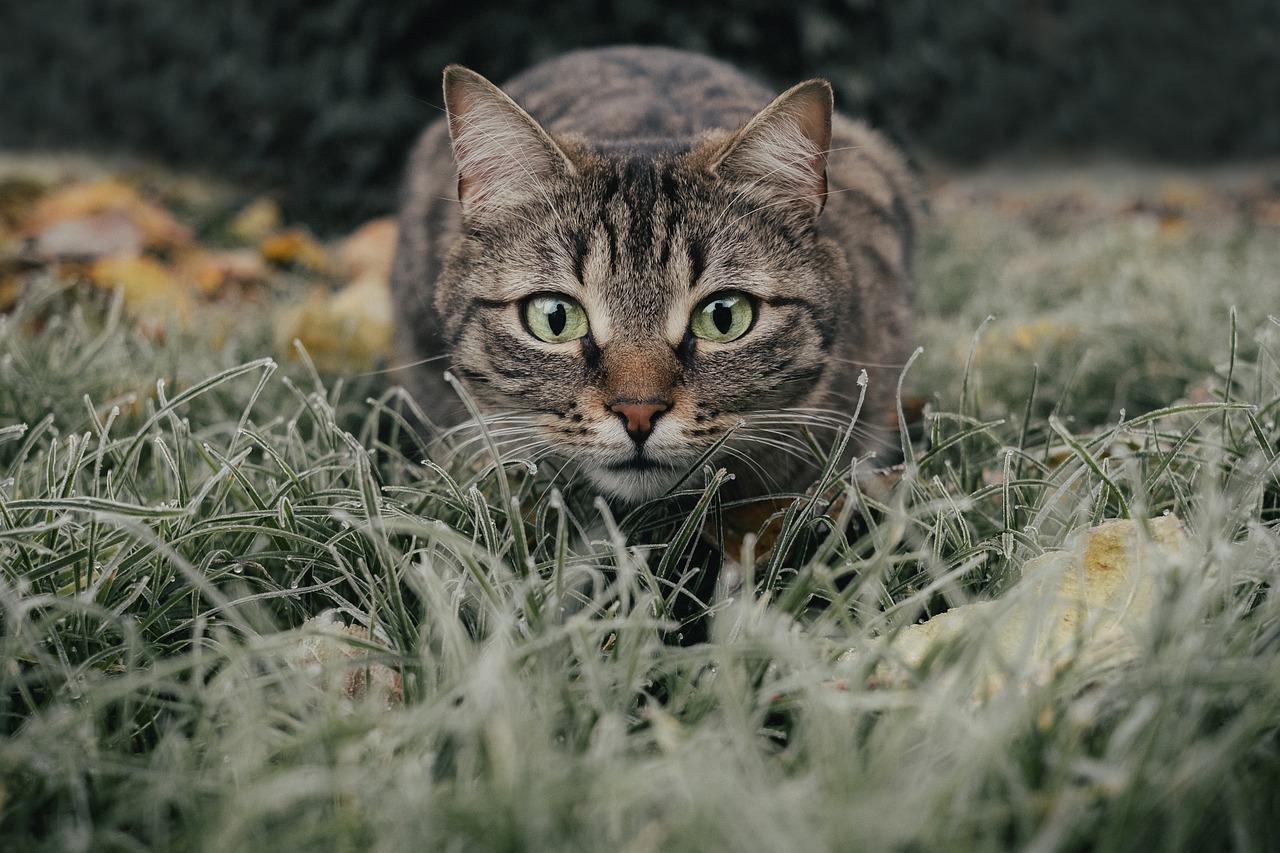
Care Requirements
The care requirements for an Abyssinian cat are crucial to ensuring they lead a happy and healthy life. These cats are not just beautiful; they are also active and social creatures that thrive on interaction and stimulation. To keep your Abyssinian in top shape, you need to pay attention to grooming, diet, and exercise. Each of these elements plays a significant role in their overall well-being, and neglecting any one of them can lead to health issues down the line.
First and foremost, grooming is essential for maintaining the Abyssinian's stunning ticked coat. Unlike some other breeds that require extensive grooming, Abyssinians have a short, fine coat that is relatively low-maintenance. However, regular brushing is still necessary to remove loose hair and reduce shedding. Aim to brush your cat at least once a week. This not only helps keep their coat looking sleek and shiny but also provides an excellent opportunity for bonding time. During grooming sessions, you might even discover some hidden quirks or preferences your cat has—like that perfect scratch behind the ear!
When it comes to diet, Abyssinians need a balanced and nutritious meal plan to support their energetic lifestyle. A high-quality cat food that lists meat as the first ingredient is ideal. Look for options that are rich in protein and low in fillers. You might consider a mix of dry kibble and wet food to ensure they stay hydrated and satisfied. It's also important to establish a feeding schedule; feeding your Abyssinian twice a day can help manage their weight and prevent overeating. Just like us, cats can develop unhealthy habits if left to graze all day, so structure is key!
Exercise is another critical component of an Abyssinian's care. These cats are known for their playful nature, and they need regular physical activity to channel their energy. Engaging them in interactive play is a great way to keep them fit and mentally stimulated. Consider setting aside time each day for play sessions using feather wands or laser pointers. You might be surprised at how acrobatic your Abyssinian can be! Additionally, providing climbing structures or cat trees can satisfy their natural instincts to explore and perch at high vantage points. They are like little athletes, always on the move, so make sure their environment supports their active lifestyle.
In summary, taking care of an Abyssinian cat involves a combination of grooming, diet, and exercise. By paying attention to these care requirements, you can ensure that your feline friend remains happy and healthy for years to come. Remember, a well-cared-for Abyssinian is not just a pet; they become a cherished member of your family.
- How often should I groom my Abyssinian? - Regular grooming once a week is recommended to keep their coat healthy.
- What type of food is best for Abyssinians? - High-quality cat food with meat as the first ingredient is ideal.
- Do Abyssinians require a lot of exercise? - Yes, they are very active and need daily playtime to stay fit and happy.
- Are Abyssinians prone to any specific health issues? - Yes, they can inherit certain genetic conditions, so regular vet check-ups are important.
Grooming Needs
The grooming needs of the Abyssinian cat are essential to maintaining their striking appearance and overall health. With their unique ticked coat, these felines require a bit of attention to keep their fur looking its best. Unlike some long-haired breeds, Abyssinians have short hair that is relatively low-maintenance, but that doesn't mean they can be neglected! Regular grooming not only helps to remove loose hair and dirt but also promotes bonding between you and your pet.
One of the most important aspects of grooming an Abyssinian is brushing. Aim to brush your cat at least once a week. This will help to minimize shedding and prevent hairballs, which can be quite uncomfortable for your furry friend. A fine-toothed comb or a rubber grooming mitt works wonders for their coat. The ticked pattern of their fur can trap dirt and debris, so a gentle brushing session can also keep their coat shiny and healthy.
In addition to brushing, it’s crucial to pay attention to their ears and nails. Abyssinians are known for their playful antics, and sometimes that can lead to dirt buildup in their ears. Regularly check their ears for any signs of wax or dirt, and gently clean them with a vet-recommended solution if necessary. As for their nails, regular trimming is essential. If their nails are allowed to grow too long, it can lead to discomfort and even health issues. Aim to trim their nails every couple of weeks, or whenever you notice they are getting too sharp.
Another aspect of grooming that often gets overlooked is dental care. Abyssinians, like many cats, can be prone to dental issues. Regularly brushing their teeth with cat-specific toothpaste can help prevent tartar buildup and keep their gums healthy. If your cat isn't fond of having their teeth brushed, consider dental treats or water additives designed to promote oral health.
Lastly, don't forget about the importance of baths! While Abyssinians generally do a good job of keeping themselves clean, occasional baths can help remove any stubborn dirt or odors. Use a gentle cat shampoo and ensure you rinse thoroughly to avoid any residue. Bathing should be done sparingly, perhaps every few months or as needed, to avoid stripping their coat of natural oils.
In summary, grooming your Abyssinian cat is a multifaceted task that involves regular brushing, ear cleaning, nail trimming, dental care, and occasional baths. By establishing a grooming routine, you not only keep your cat looking fabulous but also contribute to their overall health and happiness. Remember, grooming is not just a chore; it's a wonderful opportunity to bond with your furry companion!
- How often should I groom my Abyssinian cat? It's recommended to brush your Abyssinian at least once a week to keep their coat healthy and reduce shedding.
- Do Abyssinians require baths? While they are generally good at self-grooming, occasional baths can help remove stubborn dirt and odors.
- What tools do I need for grooming? A fine-toothed comb, rubber grooming mitt, cat-specific toothpaste, and nail clippers are essential tools for grooming your Abyssinian.
- How can I keep my Abyssinian's teeth healthy? Regular brushing with cat-specific toothpaste is the best way to maintain your cat's dental health.
Dietary Considerations
The dietary needs of Abyssinian cats are as unique as their striking appearance. To ensure your Abyssinian thrives, it’s essential to provide a balanced diet that caters to their specific nutritional requirements. Cats, in general, are obligate carnivores, which means that their diet should primarily consist of meat. However, Abyssinians have a particular affinity for high-quality protein sources and specific nutrients that support their active lifestyle.
When selecting food for your Abyssinian, look for options that list a high-quality protein source as the first ingredient. This could be chicken, turkey, or fish. Additionally, consider foods that contain essential fatty acids, vitamins, and minerals, as these contribute to their overall health and well-being. Wet food can be particularly beneficial, as it helps with hydration and can be more palatable for your feline friend. Aim to choose a diet that is rich in moisture, as Abyssinians can be prone to urinary tract issues if they don’t drink enough water.
Another important factor is the feeding schedule. Abyssinians tend to have high energy levels, so it’s advisable to feed them smaller, more frequent meals throughout the day. This approach not only keeps their energy levels stable but also helps prevent obesity, a common issue in indoor cats. A typical feeding routine might look like this:
| Meal Time | Type of Food | Portion Size |
|---|---|---|
| Breakfast | Wet food | 1/4 cup |
| Lunch | Dry kibble | 1/4 cup |
| Dinner | Wet food | 1/4 cup |
| Evening Snack | Treats | Small handful |
In addition to the type of food, consider the importance of supplements. Omega-3 and Omega-6 fatty acids can promote a healthy coat and skin, which is particularly important for Abyssinians, given their short, ticked fur. Always consult with your veterinarian before introducing any supplements, as they can provide tailored advice based on your cat's health and dietary needs.
Finally, keep an eye on your Abyssinian's weight and overall health. Regular check-ups with your veterinarian can help monitor their condition and adjust their diet as necessary. Remember, a healthy Abyssinian is a happy Abyssinian, and providing them with the right nutrition is a crucial part of that equation.
- What type of food is best for an Abyssinian cat? High-quality protein sources like chicken or fish are ideal, along with wet food to ensure hydration.
- How often should I feed my Abyssinian? Smaller, more frequent meals throughout the day are recommended to maintain energy levels.
- Are supplements necessary for Abyssinians? While not always necessary, Omega-3 and Omega-6 fatty acids can be beneficial for their coat and skin health.
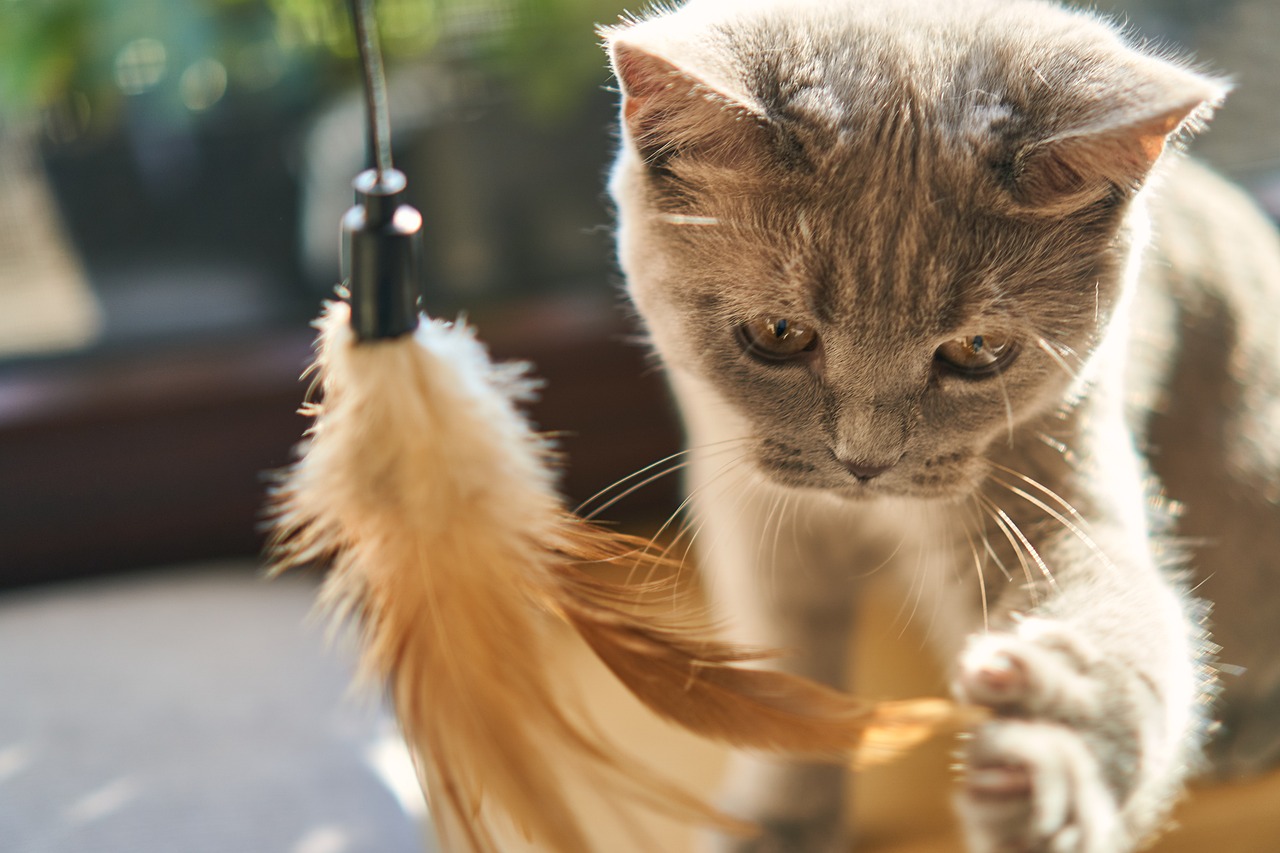
Health Issues
Like all breeds, the Abyssinian cat is not immune to certain health issues that can affect its overall well-being. Understanding these potential health problems is crucial for any prospective owner, as it allows for proactive measures to be taken. Abyssinians are generally healthy cats, but they may be predisposed to specific genetic conditions that can arise over time. Regular check-ups and a keen eye for any changes in behavior or physical condition can help in identifying issues early on.
One of the most common health concerns for Abyssinians is gingivitis, an inflammation of the gums that can lead to more severe dental issues if left untreated. This breed is also known to be susceptible to renal amyloidosis, a condition where proteins build up in the kidneys, potentially leading to kidney failure. To maintain your Abyssinian's health, it’s essential to monitor their dental hygiene and ensure they have regular veterinary check-ups that include dental assessments.
Another genetic condition that Abyssinians may face is hypertrophic cardiomyopathy (HCM), which is a heart disease that affects the heart muscles, making it harder for the heart to pump blood. This condition can be particularly dangerous as it often goes unnoticed until it has progressed significantly. For this reason, it is vital to have your Abyssinian screened for heart conditions, especially if you notice any signs of lethargy or difficulty breathing.
To provide a clearer picture of the health issues associated with Abyssinians, here’s a table summarizing the common concerns:
| Health Issue | Description | Preventive Measures |
|---|---|---|
| Gingivitis | Inflammation of the gums that can lead to dental problems. | Regular dental cleanings and at-home dental care. |
| Renal Amyloidosis | Protein build-up in the kidneys that can cause kidney failure. | Regular vet check-ups and monitoring kidney function. |
| Hypertrophic Cardiomyopathy (HCM) | Heart disease that affects the heart muscles. | Screening for heart conditions and monitoring for symptoms. |
In addition to these genetic conditions, Abyssinians can also experience common feline health issues such as obesity, which can lead to diabetes and joint problems. Maintaining a healthy diet and ensuring your Abyssinian gets plenty of exercise is essential. A balanced diet rich in protein and low in carbohydrates, combined with regular playtime, can help keep your feline friend fit and healthy.
Lastly, it’s vital to remember that routine veterinary care is essential for your Abyssinian's health. Regular vaccinations, parasite control, and annual health check-ups can go a long way in preventing serious health issues. By staying informed and attentive to your cat's health needs, you can ensure a long, happy life for your Abyssinian.
- What are the most common health issues in Abyssinian cats?
The most common health issues include gingivitis, renal amyloidosis, and hypertrophic cardiomyopathy (HCM).
- How can I prevent health issues in my Abyssinian?
Regular veterinary check-ups, a balanced diet, and maintaining dental hygiene are key preventive measures.
- What signs should I look for that indicate my Abyssinian might be sick?
Look for changes in appetite, energy levels, grooming habits, and any unusual behaviors.
Genetic Conditions
The Abyssinian cat, with its striking appearance and vibrant personality, is not just a pretty face; it also comes with some genetic considerations that potential owners should be aware of. Like many purebred cats, Abyssinians can be predisposed to certain genetic conditions that might affect their overall health and well-being. Understanding these conditions is crucial for any cat lover looking to welcome an Aby into their home.
One of the most common genetic issues seen in Abyssinians is pyruvate kinase deficiency (PKD). This inherited condition affects the cat's red blood cells, leading to anemia. While not all Abyssinians will develop PKD, those that do may show symptoms such as lethargy, weakness, and pale gums. Regular veterinary check-ups and blood tests can help in early detection, allowing for timely interventions.
Another concern is gingivitis, which is an inflammation of the gums that can lead to more serious dental issues if left untreated. Abyssinians are particularly susceptible to this condition due to their unique tooth structure. Owners should be vigilant about their cat's dental health, providing appropriate dental care and considering regular professional cleanings to prevent any complications.
Additionally, Abyssinians may experience issues related to their kidneys, such as renal amyloidosis. This condition involves the buildup of amyloid proteins in the kidneys, which can impair their function. Symptoms often include increased thirst and urination, weight loss, and vomiting. Early diagnosis through veterinary examinations can play a significant role in managing this condition effectively.
To sum it up, while Abyssinians are generally healthy cats, being aware of these potential genetic conditions can help owners provide the best care possible. Regular vet visits and a keen eye for any changes in behavior or health can make a world of difference. Here’s a brief overview of the most common genetic conditions associated with Abyssinians:
| Genetic Condition | Description | Symptoms |
|---|---|---|
| Pyruvate Kinase Deficiency (PKD) | Affects red blood cells, leading to anemia. | Lethargy, weakness, pale gums. |
| Gingivitis | Inflammation of the gums. | Bad breath, swollen gums, difficulty eating. |
| Renal Amyloidosis | Buildup of amyloid proteins in the kidneys. | Increased thirst, urination, weight loss, vomiting. |
By being informed and proactive, Abyssinian owners can ensure their feline friends lead long, healthy lives. Remember, knowledge is power, especially when it comes to the health of your beloved pet!
- What are the signs of pyruvate kinase deficiency in Abyssinians? Look for symptoms like lethargy and weakness, and consult your vet if you notice these signs.
- How can I prevent dental issues in my Abyssinian? Regular dental check-ups, appropriate dental care, and possibly professional cleanings can help maintain your cat's oral health.
- Are there any specific diets recommended for Abyssinians? A balanced diet rich in protein and low in carbohydrates is generally good for Abyssinians, but always consult your vet for tailored advice.
Regular Vet Check-ups
When it comes to keeping your Abyssinian cat healthy and happy, regular veterinary check-ups are absolutely essential. Think of these visits as a routine tune-up for your feline friend—just like you would for a car. They help catch potential issues before they become serious problems, ensuring that your Abyssinian remains in peak condition. But what exactly should you expect during these check-ups, and why are they so important?
During a typical vet visit, your Abyssinian will undergo a thorough examination. The veterinarian will check their weight, dental health, and overall physical condition. They will also listen to their heart and lungs, palpate their abdomen, and assess their skin and coat condition. It’s a comprehensive approach that gives you peace of mind and helps identify any underlying health concerns. Regular check-ups can also include vaccinations, which are vital for preventing diseases that could harm your cat.
One of the most common health issues in Abyssinians is gingivitis, a condition that can lead to more serious dental problems if not addressed. During check-ups, your vet can provide professional dental cleanings and advice on maintaining your cat's oral health at home. Additionally, Abyssinians can be prone to certain genetic conditions, such as pyruvate kinase deficiency and renal amyloidosis, which can be monitored through routine blood tests. Early detection can make a world of difference in treatment options and outcomes.
It's generally recommended that Abyssinians visit the vet at least once a year for a wellness exam. However, if your cat is older or has pre-existing health conditions, more frequent visits may be necessary. As a pet owner, you should also be vigilant about any changes in your cat’s behavior or health, such as changes in appetite, lethargy, or unusual grooming habits. These can be signs that something is amiss, and timely veterinary intervention can be crucial.
To help you keep track of your Abyssinian’s health needs, consider maintaining a health record that includes:
- Vaccination history
- Weight records
- Dental check-up dates
- Any health concerns raised during visits
In conclusion, regular veterinary check-ups are a vital aspect of your Abyssinian’s health care. They not only help catch potential health issues early but also provide you with valuable information on how to care for your beloved pet. So, don’t skip those appointments! They are an investment in your cat’s long-term health and happiness.
Q: How often should I take my Abyssinian to the vet?
A: It's recommended to take your Abyssinian for a check-up at least once a year. If they are older or have health issues, more frequent visits may be necessary.
Q: What vaccinations do Abyssinians need?
A: Common vaccinations include rabies, feline distemper, and feline leukemia. Your vet will provide a tailored vaccination schedule based on your cat's specific needs.
Q: Are there any specific health issues I should watch for in Abyssinians?
A: Yes, Abyssinians can be prone to dental issues, genetic conditions, and kidney problems. Regular vet visits can help monitor these risks.
Q: Can I do anything at home to maintain my cat's health?
A: Absolutely! Regular brushing, a balanced diet, and dental care at home can significantly contribute to your Abyssinian's overall health.
Frequently Asked Questions
- What makes the Abyssinian cat unique?
The Abyssinian cat stands out due to its stunning ticked coat, which gives it a wild, exotic look. Its playful personality and high energy levels also contribute to its unique charm, making it a favorite among cat lovers.
- How do I care for an Abyssinian cat?
Caring for an Abyssinian involves regular grooming to maintain its coat, a balanced diet tailored to its nutritional needs, and plenty of exercise to keep it active. Engaging in playtime with interactive toys is crucial for their mental stimulation.
- Are Abyssinians good with children and other pets?
Absolutely! Abyssinians are known for their friendly and social nature. They often thrive in households with children and can get along well with other pets, provided they are properly socialized from a young age.
- What are common health issues in Abyssinian cats?
Like many breeds, Abyssinians can be prone to certain genetic conditions, such as kidney disease and dental issues. Regular vet check-ups and vaccinations are essential to monitor their health and catch any potential problems early.
- How can I keep my Abyssinian entertained?
To keep your Abyssinian engaged, provide a variety of interactive toys, such as puzzle feeders and feather wands. They love to climb and explore, so cat trees and perches are also great additions to their environment.
- What type of diet is best for an Abyssinian cat?
Abyssinians thrive on a high-protein diet that includes quality cat food, preferably dry kibble or wet food formulated for their age and health needs. Always consult with your vet to determine the best feeding schedule and food type for your furry friend.
- Do Abyssinians require a lot of grooming?
While Abyssinians don't require excessive grooming due to their short coat, regular brushing is recommended to minimize shedding and keep their coat healthy. A weekly grooming session should suffice to keep them looking their best.

